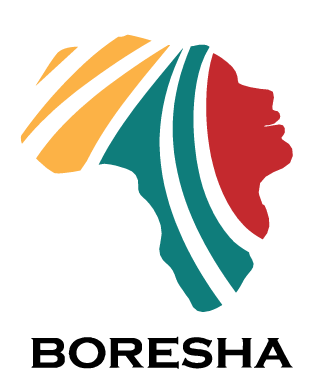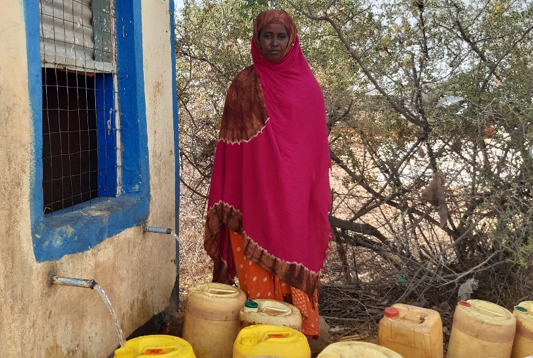By Salim Abdullahi BORESHA Project
Yabicho is a village in Rhamu district in Mandera North Sub-County, 10 KM distance from Rhamu town and two KM from River Daua. Residents here had challenges accessing direct water for close to six month after the breakdown of their only source of water supply. This enabled CARE to coordinate with the department of water through BORESHA project to rehabilitate and install new genset machine to provide supply of water to an estimated population of 3,000 (1,590 female & 1,410 male).
Suadho Hussein, is a 39 years old mother of seven who lives with her husband and children in Yabicho village in Rhamu-Mandera North Sub-county. She began painfully narrating the havoc caused by the break-down of Yabicho water supply machine (genset) to the entire division for the past six months and the arduous journey they have had to make on a daily basis to the river or pay money to water vendors to supply them water for their families at an exorbitant price of 4000 Ksh for a 5000 litre water boozer while previously she used to only pay 300 Ksh per month to access water from the nearby Water Kiosk.
Before BORESHA’s intervention, access to water became too expensive and for many like her who doesn’t have cash money to buy water all the time, risk all the way to the river infested with crocodiles which is 2KM away to enable her family get food and water to drink. Generally, women and girls are the most affected due to the ascribed gender roles, they would occasionally be joined by young boys. Every single day without fail these women would walk for more than 2 km round trip to the nearest water source overcoming several challenges. “Collecting water takes time. Simply to get water for drinking, bathing, cooking, and other household needs, we spend hours every day traveling to water sources, carrying heavy loads several times a day and often that water is not clean and safe for human consumption, we could be focusing these lost man hours to be productive” says Suadho.
Access to safe water, adequate sanitation and hygiene promotion are all equally important; a combination of these elements is required to maintain and improve health and dignity. To prevent the spread of water-borne diseases and help improve hygiene and sanitation standards, BORESHA is working on rebuilding and rehabilitating boreholes and larger water points in Mandera. In Yabicho village we rehabilitated an infiltration gallery for the shallow wells and installed a new genset pump machine.
“After BORESHA helped us in reconnecting the main water source, our community regained its lost dignity and able to save and use the money they incurred buying water for food. They really supported us and made us proud when many failed to respond to their plea” says Suadho. Safe access to clean water improves the lives of an entire community but most of all, it improves the quality of life for women and girls, as the chore of fetching water falls on them in this traditional society.
BORESHA project has also committed to strengthen our water management committee which consists of (11 men and 6 women) from the village, oversees the operation and maintenance of the water point and handles the accounts related to the income generated from selling water. It ensures that the investment made in the water point will live on for generations and will not be misused and used for maintenance and repair. “I am feeling relieved, having more time and energy to take care of my family,” says Suadho.
The provision of clean water to vulnerable people like Suadho has not only improved their wellbeing and lowered the risk of contracting waterborne diseases, but it has significant improvements in household security levels and incomes.

